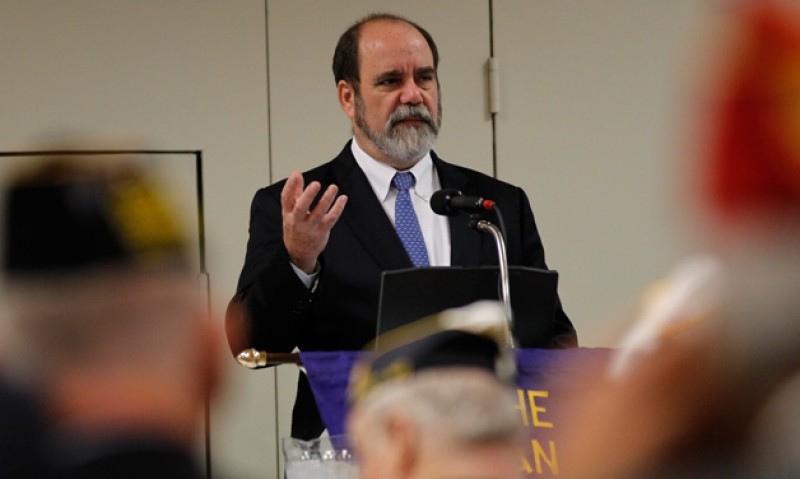
The VA updated the Legion on its progress with creating its Electronic Health Record and improving its appointment scheduling.
The Department of Veterans Affairs (VA) updated The American Legion on the progress being made in creating its Electronic Health Record (EHR) and improving its appointment scheduling.
Robert Jesse, VA’s principal deputy under secretary of health, gave the update during the Legion’s Veterans Affairs & Rehabilitation Commission meeting on Aug. 25 in Indianapolis.
Referring to VA and Department of Defense (DoD) health record systems, Jesse said, “The problem is our records don’t talk to their records.” Both systems are “prohibitively expensive to operate” and Congress has mandated that both departments must work together more effectively to implement a common health record system — EHR — scheduled to become operational in 2017.
“Part of the problem in health care is that there are so many ways to say the same thing,” Jesse said. EHR will help everyone in the VA/DoD health-care community to “speak the same language.”
A VA medical center in Chicago has been serving as a test bed for EHR, which will incorporate plug-and-play technology and mobile applications. Electronic medical records will not be housed in the system, but in an external “data lair.” Protection and security will still be top priorities in protecting the privacy of patients, Jesse explained, but they must be balanced with accessibility. Eventually, servicemembers and veterans will be able to track their medical records directly.
“In the long run, patients need to own their health records,” Jesse said. To make that happen, VA needs to develop a record system flexible enough to adopt new technologies as they emerge. “Right now, we have 12-year-olds who can write their own apps for their iPhones,” and VA needs to prepare the kind of electronic environment that will make today’s tech-savvy youth comfortable as health-care professionals.
VA’s current system for scheduling patient appointments, Jesse said, is 25 years old and the department has had issues recently with inordinate delays in scheduling appointments — especially in the area of mental health care. Modern scheduling packages are quite different and Jesse said VA is moving forward to take advantage of them.
“Scheduling a surgery is a lot like scheduling a flight mission from a carrier deck,” Jesse said, and VA’s current package is simply not meeting its needs. The department eventually wants to develop a system that would allow veterans to manage, cancel and reschedule their own appointments, and coordinate them between different provider locations.
“We want to develop an appointment scheduling system that is easy, intuitive and reliable,” Jesse said.
- Convention

